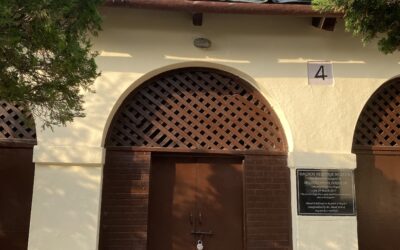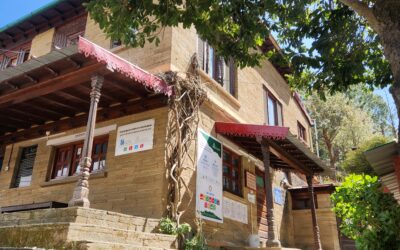In the last 6 months of working with the Van Gujjar community in Uttarakhand, I observed multiple ways in which women play a role in their unique way of living.
Cattle herding
The major role of the women of the house is the milking of buffaloes, especially if it is a nuclear family where each brother has a buffalo of his own. In other cases, she takes over kitchen activities and younger men do the milking.
There are a few cases in which she plays the role of someone who takes buffaloes into the forest and cuts pattis (a traditional shaw made by gaddi community and sold only to gujjars) for them while they eat and rest. She then also brings them back home in the evening and takes care of them on the way while they cross roads or come in contact with anyone else.
Buffaloes feel cold during winter nights, so women stay by their side to make arrangement to keep them warm, to lay a carpet of specific leaves on the floor, which keep it warm for the buffaloes to sit.
Domestic lifestyle
Women take on the responsibility of preparing food, but they have limited access to the market. They don’t go out, mostly because they are reluctant to do it for lack of experience in doing it. Their usual day involves going to the jungle, finding dry branches, carrying them back home, making tea at least four times a day, and washing utensils using a tub (portable basin). They also bring water from a source nearby and look out for their children.
During the winter, byahi bhais (a pregnant buffalo) need more attention and care. So the women give them chokker, which is a farm product and fodder loved by buffalos, which helps the byahi ones recover.
Gojri women (those from the Van Gujjar community) participate in house building and make creative patterns for their shelter. They bring the soil from river beds alongside Ganga, soak it with water and additives, build a mesh of bamboo to hold and support the mud, and construct the walls. They roam around and find the finest as well as the most colourful soil from their surroundings.
While finishing, they make different wall patterns to keep dishes and bowls. I’ve observed them being highly proud and protective of their channs (mud houses). Once every 3 to 6 months, the upper layer of the plaster and flooring needs to be redone, during which the women try creating different patterns than before. They walk barefoot, are quick and strong.
Participation in economic activities
In alpine regions, women play a major role in the preparation of paneer and mawa/khoya, both of which are taken down to the market by the man of the house and sold for a good price. Women also take over milking the buffaloes and make ghee, which is comparatively less expensive but still sold well either in the market or to the Baniya (shop owners) by men.
Girls who have market access and are exposed to the surroundings have now started stitching kurtas and salwar-suits. They also express interest in educating their own community about menstrual hygiene and the importance of education, for overall community development and hence, independence for them.
Agency
Van gujjars hold grazing permits that are claimed by the mukhiya (head of a household). Only 2% of these mukhiyas are women. They become the decision-makers in the family only when either their husbands have died or they have always been in this role.
After the recent development for women to have one third participation in a forest rights committee formed by the settlement, their agency has increased. It has empowered them, since to pass any statement, it is important for all members to agree. This has given weightage to women’s opinion. A lot of them are still not confident enough to speak up for themselves or others but it is a good start.
For more stories from pastoral communities, check out Pastoral times.




0 Comments